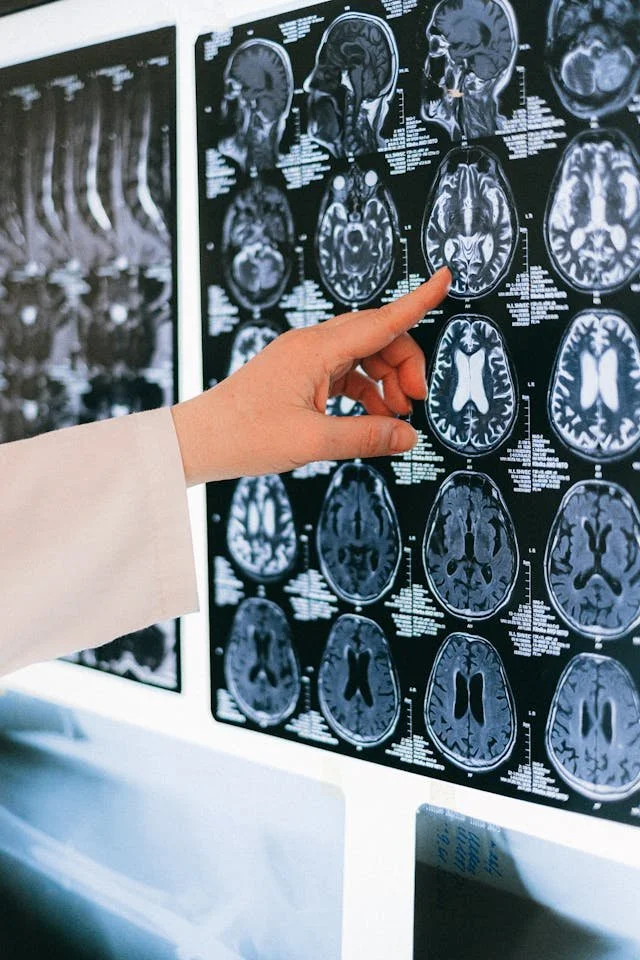The impact of chronic invalidation on the nervous system
Learn how chronic invalidation impacts the nervous system and why trauma therapy helps heal hypervigilance, emotional shutdown, and loss of self-trust.
What Trauma Bonding Really Is
Trauma bonding can make harmful relationships hard to leave. Learn what trauma bonding really is, why it feels so strong, and how trauma therapy supports healing.
A Trauma Friendly Framework for New Year Resolutions
Looking for New Year resolutions that support trauma healing? Learn a trauma friendly framework for goal-setting and how trauma therapy helps create safety, regulation, and sustainable growth.
New Year Intentions for Trauma Healing
Setting intentions for trauma healing requires safety and compassion. Learn trauma-informed New Year intentions and how trauma therapy supports recovery at your own pace.
Exposure therapy explained: facing fear safely with a therapist
Exposure therapy helps people face fear safely and gradually. Learn how this method works, how it supports trauma therapy, and why it is one of the most effective tools for reducing anxiety and avoidance.
How Mindful Trauma Therapy Supports Marginalized Communities
Mindful trauma therapy helps marginalized communities heal by combining body awareness, social context, and compassion. Learn how this approach supports safety and belonging.
The Window of Tolerance and Trauma Healing
The window of tolerance explains how trauma affects emotional regulation. Learn how trauma therapy helps you widen your window, calm your nervous system, and heal safely.
Trauma and difficulty with emotional Expression
Trauma often makes emotional expression feel impossible. Learn how trauma therapy helps you reconnect with your body, identify feelings safely, and express emotions with confidence.
Why Do I Keep Pulling Away From People?
Do you keep pulling away from people even when you want closeness? Learn how trauma shapes withdrawal, how trauma therapy helps, and steps to build safe, lasting connection.
Healing Trauma Takes More Than Time
Time alone does not heal trauma. Learn why trauma therapy is essential for processing painful experiences and how it helps survivors move from survival to resilience and growth.
The Dark Side of AI for Trauma Survivors
AI offers convenience but can trigger, isolate, and overwhelm trauma survivors. Learn how trauma therapy helps create healthier tech boundaries and restores human connection.
Why Triggers Control Your Reactions and How to Take Your Power Back
Learn why triggers feel so overwhelming after trauma and how to take your power back. Discover how trauma therapy and grounding strategies can help you manage reactions and reclaim peace.
Five Practices to Calm Your Nervous System After a Trigger
When a trigger hijacks your body, it’s hard to feel safe or in control. These five trauma therapy-informed practices can help you calm your nervous system, reconnect with the present moment, and find your way back to peace—even after overwhelm.
What No One Tells You About Healing After Trauma
Healing from trauma isn’t linear or neat—and it often doesn’t look the way we expected. Trauma therapy can help you navigate the complex, messy, and ultimately transformative journey of finding safety, self-worth, and connection again.
How to Feel Safe Again When Your Body Still Thinks You're in Danger
Even when life looks calm on the outside, your body might still be screaming danger. Trauma doesn’t just live in memories — it lives in the nervous system, quietly shaping how safe or unsafe we feel in everyday life. In trauma therapy, we learn that healing isn’t about “forgetting what happened.” It’s about helping your body remember that it’s safe now. If you've been feeling tense, numb, or on edge without knowing why, this article explores why — and how to gently begin finding your way back to safety.
How to Recognize and Manage Trauma Triggers
Trauma triggers can hijack your emotions and leave you feeling powerless—but you’re not broken. This article explores how to recognize common trauma triggers and offers gentle, effective ways to manage them using insights from trauma therapy.
Five Signs You Might Be Carrying Unresolved Trauma
Unresolved trauma can quietly impact your emotions, relationships, and body, often without you realizing it. Recognizing common signs like emotional overwhelm, trust issues, physical symptoms, intrusive memories, and deep shame is the first step toward healing through trauma therapy.
The 3-Word Mantra That Can Rewire Your Stress Response
The simple mantra “I am safe” can help calm your stress response and begin rewiring your brain after trauma. Combined with trauma therapy, this small practice fosters grounding, self-compassion, and healing on your journey toward peace.
The Fastest Way to Pause Before You React
Trauma can trigger automatic, intense reactions that feel overwhelming and out of control. Trauma therapy teaches powerful skills to help you pause before reacting, creating space for calm, safety, and intentional responses that support lasting healing.
10 Ways to Say No Without Explaining Yourself
Saying no without explaining yourself can feel impossible after trauma—but it’s also a powerful step toward healing. Trauma therapy helps survivors reclaim boundaries and build self-trust, one brave “no” at a time.




















